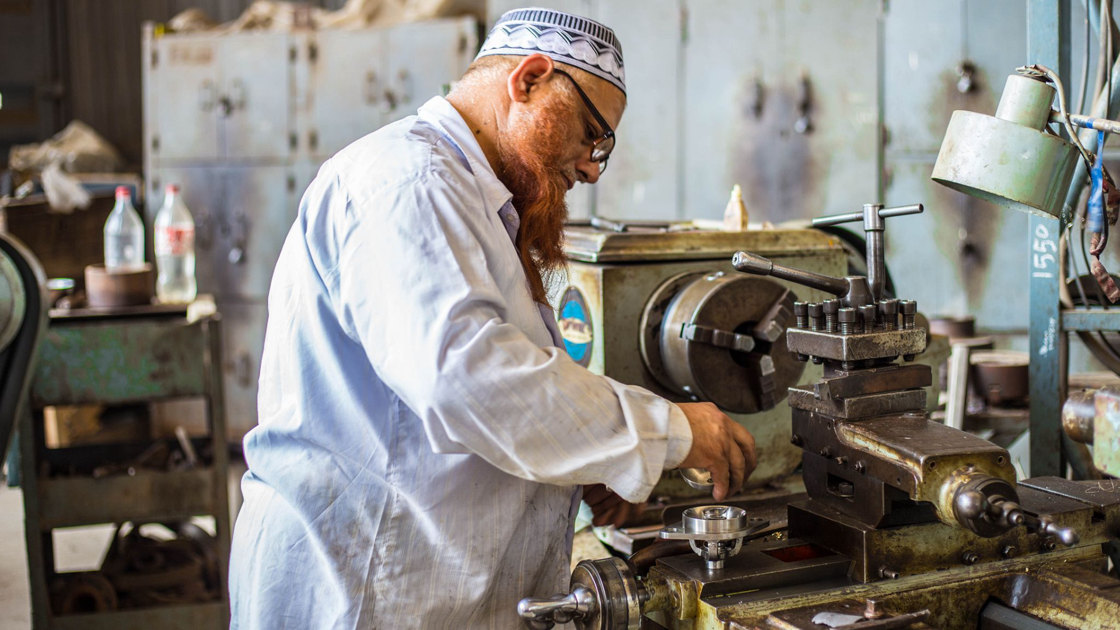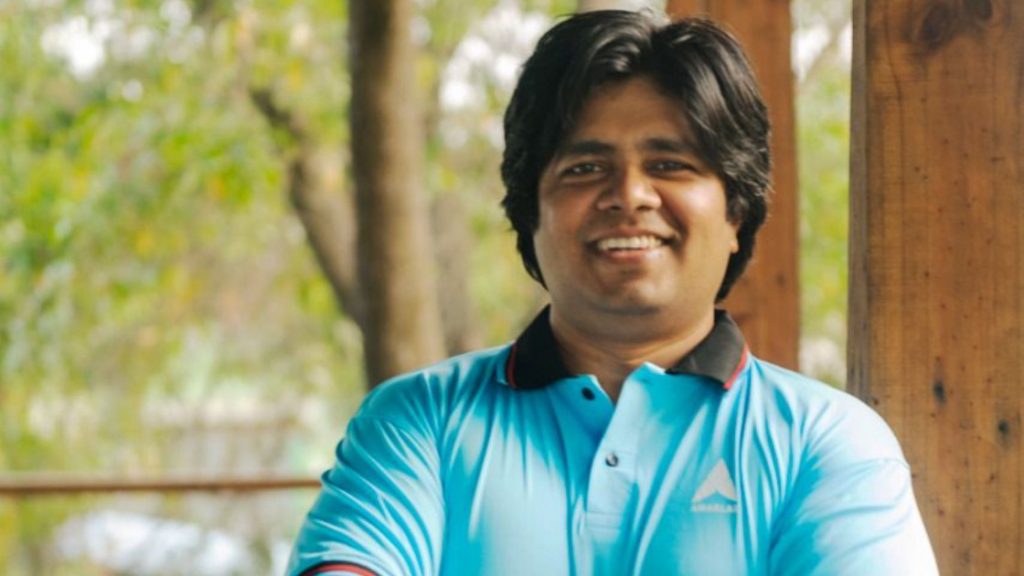
Repetition is necessary when you are learning important things. In my opinion, we rarely learn new things. Merely recall and reinforce the old ones. Strange it may sound, we are quite dumb at remembering important lessons. That’s why we repeat mistakes and screw up opportunities. To that end, our important lessons must be reinforced from time to time so that we don’t forget.
A few months ago, during an interview for our Founder Stories series, I asked Tazin Shadid, founder and CEO of health-tech startup AmarLab, about his lessons in building organizations. Mr. Tazin is a serial entrepreneur. Prior to AmarLab, he successfully built Spreeha, a non-profit organization doing important work in healthcare and education. He is also part of several other for-profit and non-profit ventures and routinely mentors and advises founders. Mr. Tazin has seen enough organization building to offer useful insights.

Now there is a difference between building a business and building a company. Business can be something you built solo. A freelancing gig. A one-man consulting firm. A company, on the other hand, is an altogether different matter. It is an entity that can run independently. It does not rely on any one person. While in a solo gig, the founder is indispensable. In a company, the founder can’t be indispensable. He must be redundant in order for the company to grow and scale. Building a company requires a vastly different mindset.
Many of the insights Mr. Tazin shares in response to my questions are almost cliches in the startup circle. Work with the best people. Be flexible when it comes to your ideas. Delegate. Build processes and systems. And be intentional about your culture from day one.
While cliches, these ideas hold truth and offer much-needed direction for building companies that scale. Let’s dive into what Mr. Tazin recommends.
I recently read an article by Canadian writer David Cain where Cain argues that advice gets better when they are specific and point you towards some concrete action. Instead of telling someone “Seize the day”, it is better to say something more explicit and directional: “start your day with a list of 3 most important things to do, enjoy them while doing, read a book, connect with an old friend, spend time with loved ones and once done, rest and explore your interest.”
With that spirit in mind, I want to be specific about what it exactly means to “hire people who are better than you”. What does it exactly mean? And why is it so important? I don’t know about you. You can interpret it in your own way. And “work with the people who are better than you” is not new advice. It is old and almost a cliche, so to speak.
I read two meanings into the phrase. You can’t be good at everything. In fact, there can be people who are better than you at things that you do the best. Founders are often unwilling to accept this reality. In general, humans are unwilling to accept our shortcomings. To that end, in order to act on the advice, you have to overcome your ego.
So hiring the best people means we have to hire people who are better than us in areas where we are not good enough and give these people authority and responsibility to operate freely. For example, if you are not good at strategy, it is in the best interest of your company to hire someone who is better than you in strategy. These are difficult decisions. Our ego and personal preferences can get in the way. But unless we face our ego and make these difficult decisions, our companies will remain stagnant.
“While working in Microsoft, one of the lessons I have learned was to surround myself with people who are better than me,” says Tazin Shadid, co-founder and CEO of healthcare startup AmarLab.
Today when running AmarLab, Mr. Tazin says: “I always keep my recruiting hat on and whenever I find anyone good, I try to hire them. I lookout for people who are smarter than me.” He suggests founders spend dedicated time in finding, hiring, and training the right people.
Similarly, it is not enough to recruit the best people if you don’t give them a canvas to play with. It is important to trust and empower people. Allow them to make decisions, make mistakes and grow. “I try to give people a platform where they can flourish,” says Mr. Tazin. “Our people can do things their way and are always encouraged to bring their full selves to work.”
This combination of hiring the best people and putting them to work leads to brilliant results. Moreover, when you empower people, they grow and take up responsibilities freeing up time for you to focus on other areas of greater importance.
The best thing you can do as a founder to grow your business and build a company is delegation. Growth is teamwork. Moreover, if you spend all of your time managing the operation and taking care of small matters, when will you think, strategize and look at the bigger picture?
That’s why many successful entrepreneurs suggest that you have to continuously fire yourself as a founder from your current role and move to the next most important role.
Many founders struggle to delegate and trust others to do their job well. They micromanage leading to dependency and stagnation. When you don’t delegate, your company never grows independent of you. Good businesses are independent of founders and can operate in their absence. The very definition of an organization is that it can operate independently.
“If your business depends on you, you don’t own a business—you have a job,” Michael E. Gerber writes in his excellent book E-Myth Revisited. “And it’s the worst job in the world because you’re working for a lunatic!”
Mr. Tazin agrees. “Another lesson I have learned while working at Microsoft was to always think about getting hit by a bus scenario,” says Mr. Tazin. “My first manager of Microsoft told me that your organization should not stop operating if you are not there anymore. I carry this lesson with me to this day. In every organization I have worked in, I have tried to make it self-reliant and not dependent on one person. If anyone is not there then other people can take over the responsibilities.”
If you want to build a scalable organization, you better delegate and build independence in the organization by developing processes and systems that can run the organization.
Flexibility is one of the counterintuitive aspects of being a founder. Founders are expected to be stubborn, determined, and persistent. It is a paradox that you have to be flexible all at the same time. The main thing here is that if something is not working you have to be willing to give it up, change it, and try something else.
This applies to your startup idea as well. When your idea is not working, you have to be willing to pivot and work on a new idea. Flexibility is often considered one of the most important qualities of successful founders.
“Sometimes founders can get fixed into one idea and do not want to change based on the customers’ needs,” says Mr. Tazin. “Many times they blame it on the systems or other aspects rather than being open. I think being flexible is necessary. As a founder, you have to be open to learning from your customers, your team, and other people.”
Culture is rarely about rules, it is about people. It is about what people do and how people interact within the organization and with outside stakeholders.
Many startup founders overlook culture building in their early days. Always under pressure, founders rarely pay active attention to the growing culture in the organization. But whether we pay attention to it or not, culture happens in an organization. And when we don’t make deliberate attempts, things can go terribly wrong as the company grows.
Culture is like habits. It is what we repeatedly do. And once learned, it is hard to change. This demands we become mindful of organizational culture from the early days.
“A founder should focus on building the culture from day one,” explains Mr. Tazin. “If you are not setting your culture right from the early days, it gets very difficult to fix later on. You have to make sure you are hiring people with the right values. Otherwise, there will be issues in the company in the long run.”
Complement this with our excellent conversation with Mr. Tazin on AmarLab and entrepreneurship and our coverage of AmarLab here.
